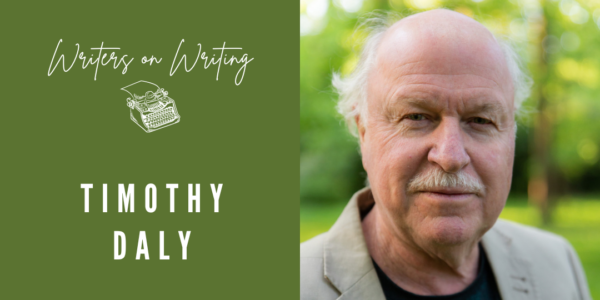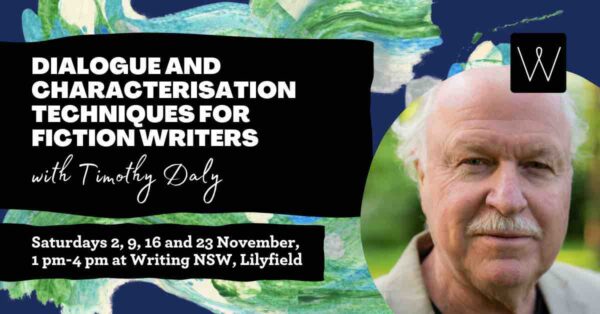
Why is good dialogue such an important tool for fiction writers?
The ability to write wonderful dialogue is connected to a deeper and more fundamental writing skill, which I’ll call ‘the power over language’. We writers need to be near-virtuosic in our language because it’s a matter of how a story is told as much as what the story is. A part of this linguistic skill is poured into dialogue, which is much more than simply ‘having characters talk to each other’. The value of having a powerful language is that we end up gripping the reader (or audience) in a very pleasurable hold, which they have no desire to escape, because it’s simply too enjoyable a hold to want to break free of!
You say that “the best characters seem to have an existence almost independent of their authors.” What is the key to creating strong characters?
In a word or two—give them a turbulent inner life. The mistake that many writers make is to put all their energies into ‘the soul of the narrating Author’, for want of a better term. They aim for a beauty of ‘authorial tone’, but forget that readers always enter the world of fiction through the twin doors of Story and Extraordinary Characters. You’ll notice I didn’t mention “the wonder and beauty of the Author’s ‘voice’ here?” That’s because it’s secondary—at least to the reader who has different priorities from the struggling Author. We writers are often so consumed with our anxieties (“Am I really a writer?” “Is this writing any good?”) that we become a bit artistically self-focussed. The most important relationship in a story is the relationship between the character(s) and the reader. We do a lot of work in this class to help writers understand that characters in a story or novel are really ‘symbols of the soul of the reader’, every bit as much as being the outpourings of the struggling author’s soul.
You’re one of Australia’s most internationally produced playwrights. Are there any playwriting techniques or approaches that you bring to writing fiction?
I use a few techniques in the workshops which I devised, first for myself, and then for the thousands of writers I have taught over the years—about 25% of whom were not playwrights but poets, short story writers, non-fiction writers and novelists.
Lastly – any books you’ve enjoyed recently?
In the area of non-fiction, I’m reading a lot of them at the moment —and I usually have 8-10 books open at any point!– especially on the cultural maelstrom swirling around the western countries like the USA, U.K., France and Australia. It’s partly because of research for a new play I’m writing, but also the cultural currents are so strong at the moment, a writer ignores them at his or her peril. It’s a wonderful time to be writing, I think, and in my workshops I try and convey the excitement of using and strengthening your own creative skills to explain the contemporary world to ourselves—and our readers.
Timothy Daly is one of Australia’s most renowned playwrights, working alongside the likes of Geoffrey Rush and Cate Blanchett in a string of national and international productions. His play Kafka Dances is the most internationally performed Australian play of all time.
Enrol in Dialogue and Characterisation Techniques for Fiction Writers with Timothy Daly, at Writing NSW on 4 x Saturdays: 2, 9, 16 and 23 November 2024, 1 pm – 4 pm.
If you want to be the first to read great advice from our incredible tutors, subscribe to our weekly e-newsletter Newsbite.
More from Writing NSW
Check out our full range of in-person writing courses in Sydney, our online writing courses and our feedback programs to see how we can help you on your writing journey. Find out about our prizes and competitions, as well as writing groups across NSW, and sign up to our weekly newsletter for writing events, opportunities and giveaways.

